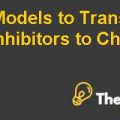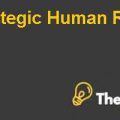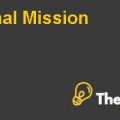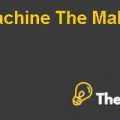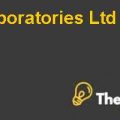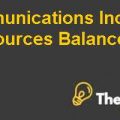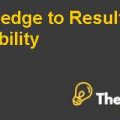Hydrogen Fuel Cells Case Solution
Introduction
Cummins Inc. is an American-based multinational company formed in 1919 by Clessie Lyle Cummins and J Irwin Miller that providing its services by manufacturing, developing and distributing engines, power generation equipment and filters. The company has extended and diversified its operations in several industries like construction, agriculture, bus, mining, commercial power, oil and gas etc. The company has got the distinction in the Ethisphere Worlds Most Ethical Companies list for 14 years consecutively.
Cummins has a wide distribution network with around 58000 employees. It has more than 600 distributors owned by company and working independently. The company is serving 190 countries and has over 7200 dealers that has significantly added value for the company. Cummins has gain a substantial proficiency over the years and is multinational company that has been functioning since 1919. With the continued demand of greener and cleaner environment.
Cummins has announced at (IAA) its (fourth generation) Hydrogen Fuel Cell Engine that is designed to meet the performance, duty cycle and packaging needs of the average to heavy duty buses and trucks. The (fuel cell) technology is offered in (135kW) single and (270kW) dual modules. The systems provide the improved operating cycle proficiency and stability by using the next generation variable pressure technology providing higher power density, operating temperature and power nodes for easier integration of the system in vehicles. The firms Daimler Trucks (North America) and Scania (Europe) have shown interest in collaborating with Cummins to develop and incorporate these next generation engines in the demonstrator automobiles.
Research Objectives
The objective of the research on the Cummins Hydrogen Fuel Cell Engine project is to establish an insights of the project’s financial sustainability, and business potential to find whether the project is worth investing. The research will try to answer the concerned questions regarding the project feasibility and potential profitability through several market and financial aspects. Different market and financial analyses will be conducted to measure the value proposition of the project.
Research Questions
The research is based the questions that would provide the investors the details required for consideration on investing in the project.
- What are the existing capabilities and business models and how would the project be initiated? What is the target market and how would the project benefit the industry in the next 25 years?
- What is the competitive dynamic in the Cummins and what are the factors that would derive the success of the project? What is the competitive positioning in the industry?
- How would the project be able to create value proposition?
- What is the financial projection and what is the indication of viability?
Market presence
The present market situation of hydrogen fuel cells and power presents various factors that indicate the market conditions and acceptance of hydrogen power as a new technology. There are various factors and elements as discussed that help to understand the market growth, product capabilities, initiatives put by Cummins and other players, and targeted segment to improve the market capability for hydrogen engines.
Key Capabilities and Pestle analysis
Political factors
Political factors can impact significantly Cummins (Hydrogen Fuel Cell) project. Some key political factors that could impact the project include:
Governments around the world are increasingly investing in clean energy technologies, including hydrogen fuel cell technology.Policies such as tax incentives, subsidies, and grants can provide financial support and help drive demand for fuel cell technology. Additionally, government support for infrastructure development, such as hydrogen fueling stations, can make it easier for customers to adopt fuel cell technology.
Government regulations and standards can also impact the development and adoption of fuel cell technology. Regulations related to emissions and fuel economy, for example, can drive fuel cell systems’ demand in the transportation industry.Standards related to safety and performance can also impact the development and marketing of fuel cell systems. Cummins is a global company, and international trade policies can impact its ability to manufacture and sell fuel cell systems in different regions.
Changes to trade policies, including tariffs can impact the cost and accessibility of raw materials and components, and can also impact the demand for fuel cell systems in different regions. Political instability, including changes in leadership or government policies, can impact the overall business environment in which Cummins operates. This instability can impact the company's ability to access financing, hire and retain talent, and conduct business operations..............
Hydrogen Fuel Cells Case Solution
This is just a sample partial case solution. Please place the order on the website to order your own originally done case solution.

